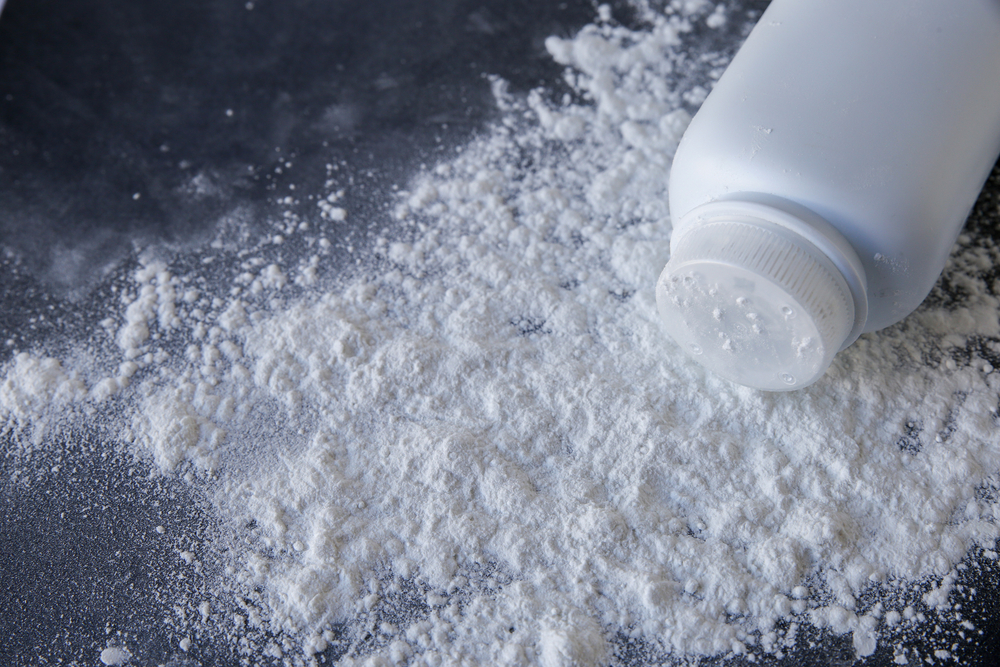In the latest trial involving claims that Johnson & Johnson talcum powder causes cancer, a Chicago jury ordered Johnson & Johnson and its former consumer healthcare division, Kenvue, to pay $45 million to the family of a woman who died of mesothelioma cancer after using the company’s talc-based Baby Powder. This significant verdict highlights the potential liability the companies face for allegedly failing to warn consumers about the presence of asbestos particles in their talcum powder products.
The Talcum Powder Verdict and its Implications
The talcum powder lawsuit against Johnson & Johnson was brought by the family of Theresa Garcia, who passed away from mesothelioma in 2020. The family alleged in the lawsuit that Garcia’s regular use of Johnson’s Baby Powder caused her cancer and accused the manufacturer of knowing about the presence of asbestos in their talcum powder for decades without disclosing the risks to consumers.
While ovarian cancer has been the primary focus of most talcum powder lawsuits against Johnson & Johnson, claims involving mesothelioma have also emerged. Mesothelioma is a rare and aggressive cancer that affects the lining of the lungs, abdomen, or heart. It is primarily caused by exposure to asbestos fibers.
Johnson & Johnson Facing Over 50,000 Talcum Powder Lawsuits
The Chicago jury found Johnson & Johnson 70% responsible for Garcia’s death, while Kenvue, the recently spun-off consumer healthcare division, was assigned 30% liability. This verdict serves as a significant blow to the companies, as they are already defending over 50,000 lawsuits related to their talcum powder products, with allegations of various types of cancer.
Johnson & Johnson says that it plans to appeal the court’s decision, asserting that the verdict lacks a basis in scientific evidence. The company maintains that decades of independent scientific evaluations confirm the safety of talc and dismiss the connection between talc and cancer.
The Dangers of Asbestos in Talc Products
Asbestos is a naturally occurring mineral highly valued for its heat resistance and insulating properties. Asbestos was once widely used in a number of industrial applications. However, the mineral is known to pose serious health risks when its fibers are inhaled or ingested. Prolonged exposure to asbestos can lead to severe respiratory diseases, including lung cancer and mesothelioma.
For decades, Johnson’s talcum powder was widely used for personal hygiene and baby care. However, a Reuters investigation in 2018 revealed that the company’s powder sometimes contained trace amounts of asbestos – considered a human carcinogen by the World Health Organization – and that the company knew for decades that its talc was sometimes tainted with the carcinogen.
Although Johnson & Johnson has since replaced talc with cornstarch in its baby powder products, the presence of asbestos has raised concerns regarding the safety of these products and the potential health risks for individuals who used them regularly.
Studies Linking Talcum Powder to Cancer
Numerous scientific studies have explored the link between talcum powder and asbestos-related diseases, suggesting that the presence of asbestos in talc products can pose a significant health risk to consumers.
In a 2014 study published in the International Journal of Occupational and Environmental Health, researchers link asbestos fibers in a commercial talc-based powder product to the development of mesothelioma. The study found that the product contained asbestos and that the application of the powder released inhalable asbestos fibers, which accumulated in the deceased individual’s lungs over time and “likely caused or contributed to her mesothelioma as well as other women with the same scenario.”
A talcum powder case study published in the Journal of Occupational and Environmental Medicine in 2019 highlights 33 people, mostly women, with confirmed malignant mesothelioma whose only “substantial exposure to asbestos was through the use of talcum powder.” According to study co-author Jacqueline Moline, a professor of occupational medicine, epidemiology and prevention at the Feinstein Institutes for Medical Research at Northwell Health, “Everything points to cosmetic talc being the cause.”
Talcum Powder Lawsuit Information
Johnson & Johnson knew for decades that asbestos lurked in its Baby Powder, Reuters
A New Study Suggests Tainted Talcum Powder Can Cause a Rare Cancer. Here’s How That Could Play Out in the Courtroom, TIME




